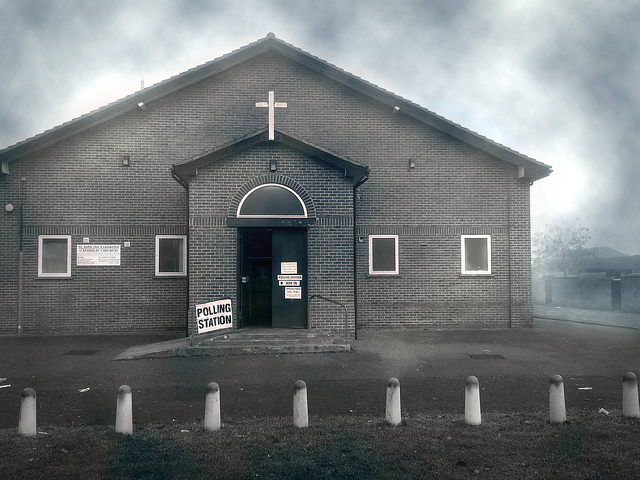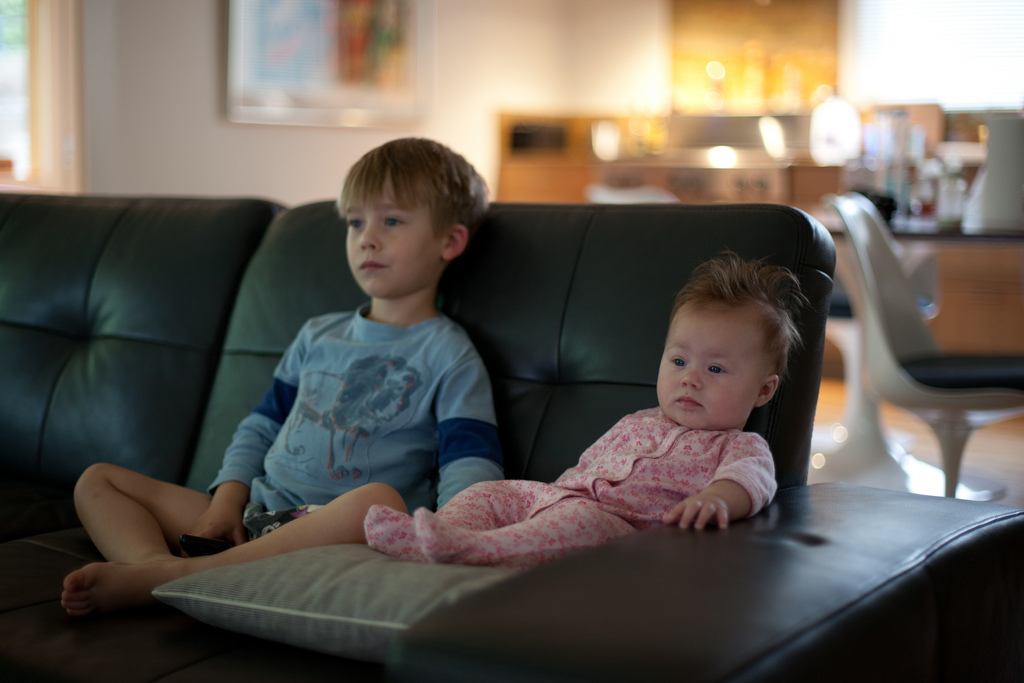On Friday in the High Court, Justice Cobb handed down the latest judgment in the long-running saga that is the legal dispute over whether or not the London Oratory School’s admissions policy complies with the School Admissions Code. The case started just over two years ago when the British Humanist Association submitted an objection, and the latest decision pertained to the legality of a determination issued by the Office of the Schools Adjudicator (OSA) that was issued last summer. The school challenged ten different aspects of that determination.
Some parts of the press reported the judge’s decision as a ‘win’ for the Oratory, with the school describing its challenge as ‘successful’ and its head quoted as saying that ‘The Judge’s decision supports us in continuing to preserve the School’s ethos and serving Catholic families throughout the whole of London.’ But a thorough reading of the decision leads us to three different conclusions:
- The judge’s decision was, in our view, wrong in several places.
- At any rate, the school actually has largely lost the case, only generally winning in places that do not mean it can change its admissions policy back to what it was before the whole saga started.
- And even in places where the school won, the decision was often that the OSA’s reasoning was flawed. This does not necessarily mean the OSA’s conclusions were wrong and in fact in a few areas the judge ruled that a fresh decision must be taken – i.e. the case is not yet over yet.
So the school has really won very little at all.
In total the school was found by the OSA to break the Admissions Code in 105 different places. The school only challenged a handful of these, leaving the vast majority unperturbed. The main impetus for the school’s challenge was the decision that the school could no longer have a ‘Catholic service criterion’ as part of its admissions arrangements. This required three years of service to the Catholic church or other associated activities, with priority given on the basis of things like flower arranging. This was found to be uncompliant with the Code for a number of different reasons, including paragraphs 1.9e) (giving priority on the basis of practical support to a religious organisation), 1.9i) (taking into account religious activities not laid out as permitted by the school’s diocese), 1.8 (unfairly discriminating on the basis of ethnicity and social background) and 1.38 (not having had sufficient regard to the diocesan guidance).
In judicially reviewing the OSA’s decision, the school did not even challenge the finding with respect to paragraph 1.9e), so never had any hope of getting a ruling that fully contradicted the OSA’s decision in this area. On top of that, the school lost its challenge under paragraph 1.9i). This means that the main areas where the school won actually will have no impact on its admissions criteria: in effect it still has to change them in the way the OSA determined last year.
So we can see already that in the vast majority of cases, including with respect to the ‘Catholic service criterion’, the decision taken against the school has already been found to stand.
Beyond that, it is worth going through each of the school’s ten areas of challenge, with our three conclusions in mind.
(1) Failure to ‘have regard’ to the Diocesan Guidance
Paragraph 1.38 says that ‘Admission authorities for schools designated as having a religious character must have regard to any guidance from the body or person representing the religion or religious denomination when constructing faith-based oversubscription criteria’. The OSA found that the School had broken this, in part because ‘paragraph 1.38 is given greater force in relation to faith-based oversubscription criteria generally by paragraph 1.9i of the Code’, which says that the school must not ‘prioritise children on the basis of their own or their parents’ past or current hobbies or activities’, except when taking account of religious activities, as laid out by its diocese. If the school had properly had regard to the guidance, it would not have broken paragraph 1.9i).
In reaching his determination on this issue, however, Justice Cobb did not mention the role of 1.9i) at all (only considering it later under the school’s third challenge) and instead only focused on 1.38 and the meaning of ‘have regard to’, going through a range of relevant case law. Here he found that the OSA applied a too stringent test (in deciding that any reason for departing from the guidance must be ‘good’ and ‘compelling’), and therefore, while finding that ‘the School’s approach to the relevant test was also flawed’, he concluded that the OSA had not correctly found that 1.38 had been broken.
As a result he ruled that there will ‘need to be a further determination of the School’s approach to the Diocesan Guidance, its compliance with para.1.38 of the Admissions Code, and the adequacy of the reasons for departure, applying the appropriate test.’ So the school has not yet won here but only triggered a further case.
(2) Socio-economic discrimination
Paragraph 1.8 of the Code says that ‘Admission authorities must ensure that their arrangements will not disadvantage unfairly, either directly or indirectly, a child from a particular social or racial group.’
The London Oratory School is highly socio-economically selective. As we wrote in our paper which we submitted to the case in May 2014, the January 2013 School Census records that 6.6% of pupils are eligible for free school meals, compared with 38.7% in its middle super output area (i.e. immediate vicinity), 40.8% in the neighbouring MSOAs, 42% in its local authority, and 26.1% across London as a whole. The Fair Admissions Campaign’s map ranks this disparity between the school and its area as making it the ninth most socio-economically selective state secondary school in England.
Justice Cobb, however, starts off by agreeing with the adjudicator that there is ‘some inherent social selection of school candidates within the Catholic population as a whole’, before going on to find that ‘the data relied on by the School showed that six of the eight schools with similarly high percentages of Catholic pupils had similar levels of pupils entitled to free school meals to the School’. This, surely, simply shows that such discrimination is common amongst oversubscribed Catholic schools.
However, Justice Cobb also found that the adjudicator did not show that it was the faith-based oversubscription criteria that were causing this discrimination, nor that it was unfair. It seems to me to be quite obvious that if we first agree there is ‘some inherent social selection of school candidates within the Catholic population as a whole’, and then we select Catholics, then that faith-based selection is going to cause socio-economic discrimination. But no matter: the more significant point is that the decision did not address per se the conclusion that the school is socio-economically advantaged. It unambiguously is. It only found that the case had not been properly set out.
Finally, the school also argued that it was unfair that it had not seen the adjudicator’s evidence around socio-economic advantage prior to the determination. The judge agreed with this. I do not agree: 1. The BHA submitted such evidence during the course of the case, which the school chose not to look at; and 2. At any rate it is easily available in the public domain. The school should have been aware of these statistics; that it was not was negligent on its part.
(3) Catholic Service
To reiterate, paragraph 1.9i of the Code says that the school must not ‘prioritise children on the basis of their own or their parents’ past or current hobbies or activities’, except when taking account of religious activities, as laid out by its diocese. The judge correctly rejected the school’s challenge to the finding that the ‘Catholic service criterion’ breaks this paragraph. This essentially means that the success of challenges 1 and 2, above, are symbolic victories.
It is worth noting that the judge incorrectly states that the OSA ‘declined to state whether this criterion also breached para.1.9(e)’, when in fact the adjudicator did find that this paragraph was also broken.
(4) Catholicity: Parent or Parents
The fourth challenge by the school was to the OSA’s finding that its arrangements were unfair in requiring two Catholic parents to both be religiously observant. The judge agreed with this finding with respect to the school’s 2014 admission arrangements. But he disagreed with respect to the 2015 arrangements due to the new statement in the 2015 arrangements that references to ‘parents’ should be read as ‘to one parent if the child resides with only one of the parents’. But this new statement does not deal with the case where the child has two Catholic parents but only one is observant: this child/observant parent is put at a disadvantage to a child who only has one Catholic parent. The judge got this wrong in a way that threatens the widely established principle that ‘faith’ schools can only require one parent to be religiously observant, something that is a very basic question of fairness. The Code might now need clarification.
(5) Request for parents’ baptismal certificates
The school asks for parents’ baptismal certificates. The OSA said that this breaks paragraph 2.4 of the Code where it says that the school must not ask for ‘any personal details about parents and families, such as maiden names’ – as maiden names will be revealed by baptismal certificates. But the judge ruled that 2.4 ‘is not to be read in such a way that would place a Governing Body in the position of being unable to apply a legitimate oversubscription criterion in practice just because it was prevented from requiring the necessary evidence’ – and therefore the request could stand. I do not agree that this is a correct reading of 2.4 and think the Code could now do with being clarified.
However, the judge also writes that this part of the decision is dependent upon the ultimate outcome of challenge (1) above, i.e. ‘is dependent on a future finding that there is a clear and proper reason for departing from the Guidance in these respects’ – as if the school did not have good reason from departing from the diocesan guidance in this area, then the oversubscription criterion is not legitimate so paragraph 2.4 does in fact apply. So this is only a preliminary finding.
(6) Previous Catholic education
In its arrangements the school gave priority to those attending Catholic primaries in 2014, and then those having received a Catholic education (including through primaries) in 2015.
Paragraph 1.9b) says that schools must not ‘take into account any previous schools attended, unless it is a named feeder school’. Paragraph 1.15 adds that ‘The selection of a feeder school or schools as an oversubscription criterion must be transparent and made on reasonable grounds.’ The school was found to break both of these paragraphs of the Code.
The judge upheld the decision with respect to 1.15, but overturned it with respect to 1.9b) on the basis of the reasoning that ‘the primary information sought from the candidate’s parent(s) is whether the candidate has attended a Catholic School (not which school), even though the name of the school is requested as proof of that education’. This seems to me to be an extremely strange reading of 1.9b) – taking into account a type of school (e.g. all Catholic schools) is still taking into account previous schools attended, even if the specific individual schools are not taken into account. Perhaps the Code now needs clarifying in this area.
The judge also writes that ‘there is no prohibition within the Admissions Code… upon a Governing Body asking the name of previous schools’. But paragraph 2.4 says that schools must only ‘request additional information when it has a direct bearing on decisions about oversubscription criteria’. So in fact there is such a prohibition.
At any rate, this is again a departure from the diocesan guidance, and the judge again writes that this part of the decision is dependent upon the ultimate outcome of challenge (1) above, i.e. ‘is dependent on a future finding that there is a clear and proper reason for departing from the Guidance in these respects’. So again this is only a preliminary finding. But what is more the school sought to justify its taking into account Catholic education by reference to canon law. Therefore such consideration plainly falls under the remit of paragraph 1.9i). It is not laid out as permitted by the diocese for a school to take into account Catholic education as a religious activity. This fact is not discussed in the judgment and could well be grounds for a future successful challenge to the school’s admissions arrangements, if such a criterion continues to have a place in them.
(7) Choristers
(8) Statement of ‘Medical and social need’ on Religious Inquiry Form
(9) Parents’ signature(s)
These three challenges concerned points of clarity and the judge concluded that the OSA’s determination was fine. However in the third (allowing two parents to sign the form) he wrote that the adjudicator’s determination ‘verges on the pedantic’. I do not agree: as a matter of fairness it is important that schools make clear throughout that only one parent is considered in religious oversubscription criteria.
(10) Consultation on admissions criteria
The last issue related to whether or not the school consulted parents of 2 to 18 year olds, which is required by the Code and regulations. The OSA wrote that the school had ‘no evidence … which … constitutes a meaningful attempt to bring the school’s proposed arrangements to the attention of the group in question’. The judge did not agree with this, and so quashed this part of the decision, but did agree that insufficient steps had been taken and so rejected the school’s reasoning. This therefore is a partial victory for the school at best.
Conclusion
As can be seen, therefore, in almost every case where the school won, the victory was partial, temporary, and/or of no practical consequence. In this light the school’s statement that the judgement was a great victory on its part was erroneous. This fact should be reflected in its subsequent admissions arrangements.


